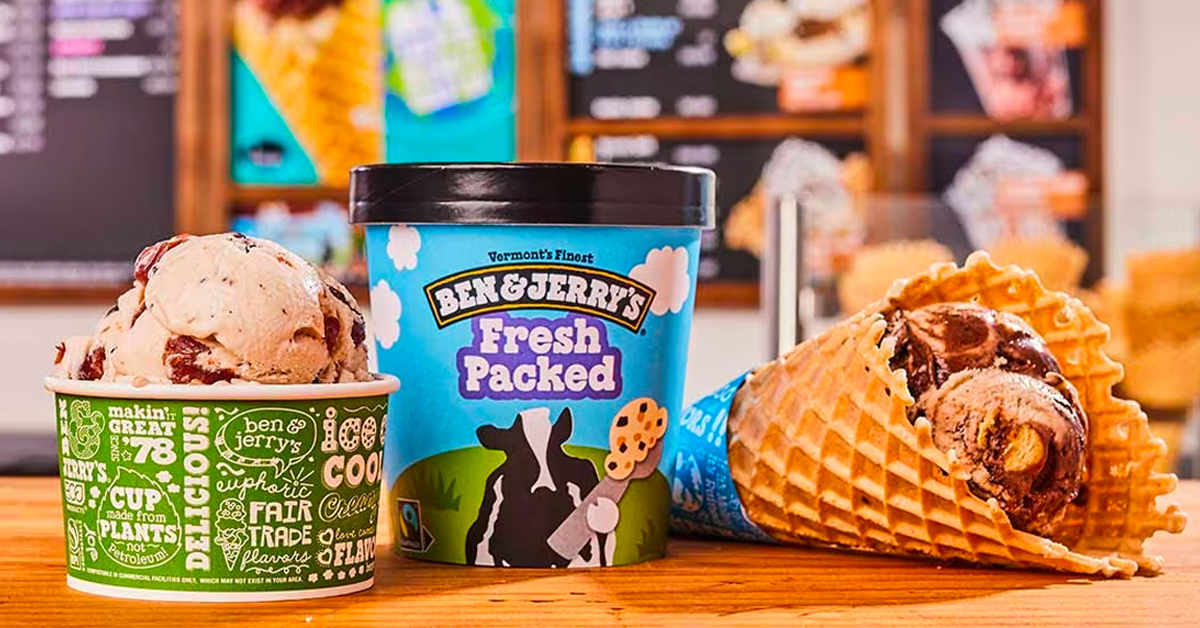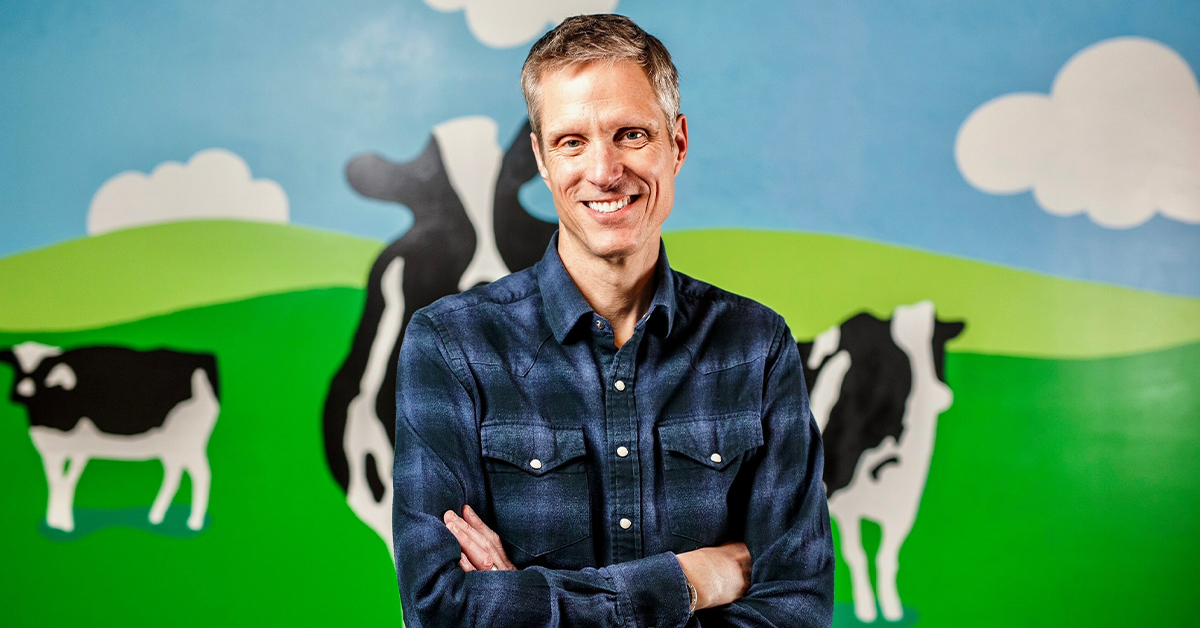From Tour Guide To CEO, Ben & Jerry’s Names A New Leader

Ben & Jerry’s longtime CMO Dave Stever has now officially done it all in his 34 years at the company. This week, the Unilever-owned ice cream brand announced Stever has risen to the top with his appointment as new CEO.
Stever steadily moved his way up the ranks and has occupied the CMO role for the last 14 years. He has been in the front seat of the company’s various social and environmental messaging initiatives, and his promotion indicates that the company will continue to highlight its social activism.
“Dave’s long history at Ben & Jerry’s, along with his recognition of the integral role that the company’s values and Social Mission play in our growth and our commitment to advancing justice and equity in the world, make him the best choice to write the next chapter in Ben & Jerry’s remarkable story,” said Ben & Jerry’s board chair Anuradha Mittal in a statement.
Stever assumes the role from Matthew McCarthy who was Unilever’s VP of foods in North America for over six years and senior director of Deodorants and Men’s Grooming for over 25 years before leading Ben & Jerry’s for the last five years.

In his LinkedIn post, departing CEO Matthew McCarthy wrote that he was leaving to “make the leap to pursue new adventures. In his post he highlighted Ben & Jerry’s goals of supporting liberal issues and addressing the country’s ongoing rifts over racial inequality, taking a position against a culture of white supremacy that many see as baked into many of the country’s institutions, and even the business itself.
“One of the most important parts of our growth is commitment to racial equity and inclusion. We acknowledge that white supremacy culture is within B&J’s and all around us,” McCarthy wrote yesterday. “We have far to go but are committed to making Ben & Jerry’s an anti-racist company.
Considered one of the more prominent CPG companies to lead with social consciousness as part of its branding, Ben & Jerry’s has continued to emphasize its work with social justice and equity issues in recent years. In 2022, The Ben & Jerry’s Foundation granted $4.3 million in support progressive, justice-focused grassroots organizing around the country. The brand also teamed up with Tony’s Chocolonely on an open chain-sourced cocoa network last year to reduce modern slavery in the chocolate supply chain.
Most recently, the company posted a story on its website supporting trans people rights and highlighting the preponderance of anti-LGBTQ legislation going through various statehouses. The company is also very active on Twitter, posting recently about protecting asylum seekers, reproductive healthcare legislation and the dangers of white supremacy.
In 2022, the multinational food corporation launched a pilot program with 15 dairy farms that work with Ben & Jerry’s in an effort to reduce carbon emissions by up to half by 2024.
Some of Ben & Jerry’s stances on human rights issues have even put it at odds with its parent company. Last year, the brand sued Unilever aiming to block the sale of Ben & Jerry’s Israeli business to its licensee Israel-based American Quality Products Ltd saying that it was “inconsistent with the Essential Integrity of the Brand.” The brand lost its bid to block the sale in August.
Even among the internal squabbles, Ben & Jerry’s – and ice cream as a whole – remains a significant part of Unilever’s business. The frozen dessert represents 13% of its total turnover and 9% of underlying operating profit, the company stated in its 2022 Annual Report to investors. Unilever claims to account for approximately one-fifth of the global ice cream industry.

















